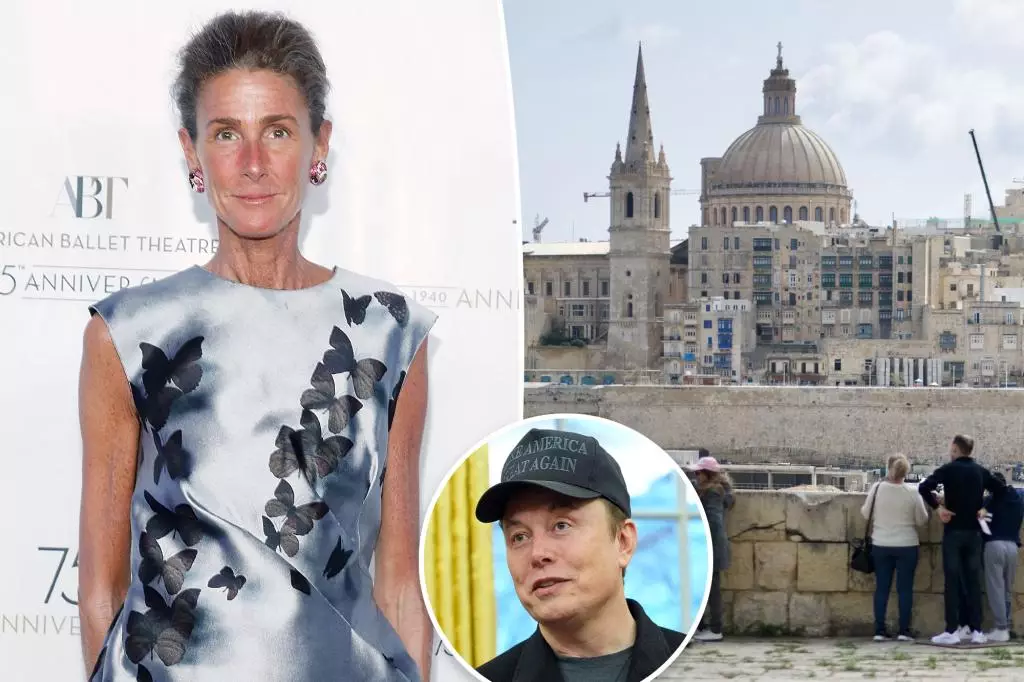In an era defined by strategic maneuvering and unpredictable shifts in diplomatic relations, the appointment of ambassadors has taken on particular significance. Under President Trump’s administration, a roster of high-profile nominees has brought a blend of celebrity and social influence to some of the world’s more obscure postings. These choices have elicited both intrigue and skepticism, particularly as the administration hints at the closure of various embassies and consulates.
One such nominee, Somers Farkas, known for her prominence in elite social circles and her philanthropic efforts, is poised to become the ambassador to Malta, pending Senate confirmation. Under typical circumstances, such an appointment would be seen as a recognition of her accomplishments. However, the broader context—a looming wave of potential embassy closures—casts a shadow over her prospective role. With political insiders suggesting that the administration may be eyeing a significant reduction in diplomatic presence worldwide, the question remains: how will these appointed ambassadors fulfill their duties if their embassies are shuttered?
The Reality of Diplomatic Appointments
Some political observers have belittled the idea that such appointments can lead to meaningful contributions to U.S. foreign policy, viewing the selections as little more than window dressing. Critiques arise, highlighting the apparent disconnect between the qualifications of nominees like Farkas and the serious challenges that come with diplomatic roles. Skepticism is only amplified by reports that numerous embassies—including those in Luxembourg, the Central African Republic, and South Sudan—are under threat of closure. Supporting this vague sense of urgency is an insider’s suggestion that displaced ambassadors might find themselves in precarious positions, raising the image of them “camping out” in their respective capitals.
Yet, not all news is bleak for Farkas and her colleagues. Sources indicate that despite potential embassies facing closure, Farkas has undergone ambassadorial training and appears capable of handling the responsibilities of the role efficiently, should she receive confirmation. Despite the hurdles, this preparation speaks to a level of commitment and readiness that contrasts sharply with the rhetoric surrounding these nominations.
The Celebrity Factor in Diplomacy
Moreover, the choice of celebrity figures like Kimberly Guilfoyle and Herschel Walker for ambassadorships in Greece and the Bahamas, respectively, adds another layer to the discussion. Beyond the traditional diplomatic credentials, these appointments reflect a growing trend where social standing and media presence trump conventional qualifications. It’s a double-edged sword; on one hand, their fame can galvanize public interest in diplomatic affairs; on the other, it raises concerns about the sincerity and seriousness of U.S. diplomatic endeavors.
As regions once deemed secondary to U.S. interests prepare to transition into the unknown, the implications of such appointments and their ultimate effectiveness remain to be seen. Will these ambassadors have the opportunity to cement relations, or will they be left grappling with the fallout of administration policies that threaten to leave them without a post?
In such a rapidly evolving diplomatic scenario, the final outcomes hinge less on the talents of nominees like Farkas but rather on the overarching strategies executed by leaders and the stability of international relations. The future of these high-profile ambassadors lies buried under layers of uncertainty, raising critical questions about the role of diplomacy today.


Leave a Reply